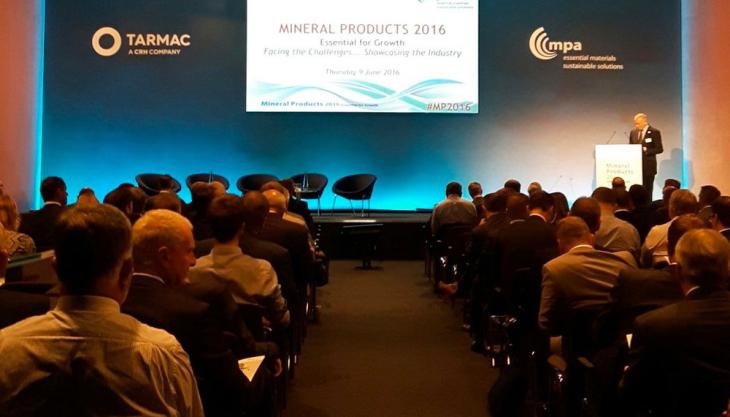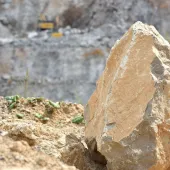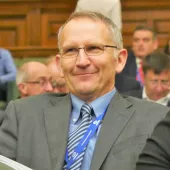MPA members’ annual conference report

Key industry conference highlights significant industry challenges and opportunities
THE Mineral Products Association (MPA) members’ annual conference ‘Mineral Products 2016 – Essential for Growth’, which took place on Thursday 9 June at the Queen Elizabeth II Conference Centre, Westminster, with the theme ‘Facing the Challenges…Showcasing the Industry’, attracted an audience of more than 185 high-level delegates from over 90 member companies and stakeholders.
BBC business editor Simon Jack and BBC Radio 4 Today programme presenter Justin Webb managed topical discussions, including an interactive referendum debate between Skills Minister Nick Boles MP, from the ‘Stronger IN’ campaign, and Richard Tice, from the ‘Leave EU’ campaign, supplemented by independent input from constitutional expert Prof. Vernon Bogdanor of King’s College London, which helped raise awareness of the issues for delegates, who probed speakers with a variety of questions.
Other expert speakers from the Confederation of British Industry (CBI), the National Institute of Economic and Social Research (NIESR); Cranfield University; Savills; Highways Monitor; the Home Builders Federation (HBF); Metro-Dynamics and KPMG LLP participated in debates covering economic prospects, climate change resilience, the housing market, English devolution and infrastructure investment.
Rain Newton Smith, chief economist at the CBI, and Simon Kirby, economist with NIESR, considered that economic prospects for continuing modest levels of economic growth would be threatened by Brexit.
Prof. Paul Leinster from Cranfield University and chair of the Natural Capital Committee gave an address on the importance of climate resilience and the industry’s role in managing and mitigating the effects of a more volatile climate.
John Slaughter, from the HBF, and Neal Hudson, housing market analyst at Savills, identified that housing volumes were increasing and government measures such as ‘Help to Buy’ were having a significant impact, but concerns were raised about longer-term affordability, the lack of public and private rented housing and how government will eventually reverse out of current market subsidies.
Constitutional specialist Professor Vernon Bogdanor led a panel debate on devolution, during which planning consultant Catriona Riddell highlighted risks to the effective safeguarding of mineral-bearing land, and Mike Emmerich, chief executive of Metro-Dynamics, stressed the importance of the local authority role and the need for long-term perspectives. Prof. Bogdanor highlighted the political importance of high-profile elected mayors and pointed out that effective devolution required an understanding that some areas would perform better than others.
Peter Antolik from the Highways Monitor explained the key role of the new regulator, and Richard Threlfall from KPMG said that there was a clear political consensus on the need for infrastructure investment and that prospects for this sector were the best on record.
Nigel Jackson, chief executive of the MPA, said: ‘Whilst the economy continues to grow, supply strains remain an issue, including closing the skills gap, and sourcing materials. Mineral resources continue to be difficult to access, so the planning system remains a top priority after years of under-replenishment of mineral reserves.’
He added: ‘Since its formation in 2009, the MPA has grown significantly. We are now developing our vision for 2025 – the strategic priorities, the objectives and targets – in order to ensure that the industry drives change, raises standards and improves perceptions over the next decade.’







